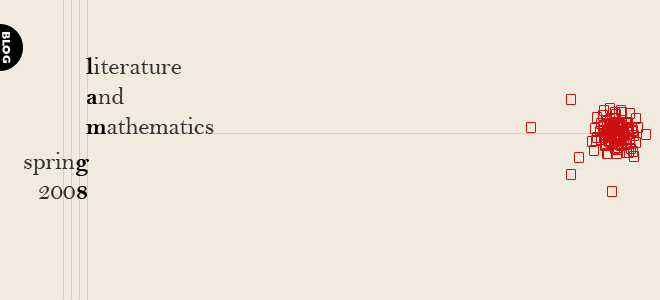There is a fine line between finding patterns done by educated professionals and finding patterns done by crazy people. Educated professionals such as professors work hard for years studying particular subjects especially in the field of mathematics trying to come up with a solution to a problem. This is not a form of craziness because professors have some direction in their research and they are trained and educated professionals. They are qualified, older, and respected individuals. They may seem eccentric and crazy but are not that way because the solutions they are looking to provide will solve numerous real world problems. When intelligence is combined with strong passion then it doesn’t mean that someone is crazy; they are passionate.
On the other hand, if someone with no direction were trying to make sense of something totally random, then that would seem crazy to me. Trying to understand the meaning of life, making sense of why certain colors are used around us, why certain things are the way they are, all seem crazy to me.
Friday, March 28, 2008
Making Sense of Insanity
Subscribe to:
Post Comments (Atom)

3 comments:
I don't agree with your statement: "Trying to understand the meaning of life[, and] why certain things are the way they are... seem[s] crazy."
My first problem with this statement is that if these things are crazy, then math, science, and almost any other field is crazy. This is because all of the fields of knowledge are trying to get at why certain things are the way they are. Secondly, if people that are trying to find the meaning of life are crazy, then almost all of humanity would be considered crazy. Aristotle, Plato, Descartes, and most other philosophers would be considered crazy.
What I was meaning to say was that an education is a necessity to make someone appear sane in their work. Philosophers, scientists, mathematicians and people in other fields are all educated to some degree and thus have credibility and validity to their research. This shows that they are not crazy, just passionate.
I don't know if it's a matter if education, necessarily. I think it's a matter of studying a pattern that most people can understand or relate to. The less direct impact said pattern would have on people's lives, the more esoteric your obsession appears. There are plenty of totally sane math professors who spend their careers calculating how many spheres could fit in a certain 6-dimensional shape. Such an obsession is based on a lot of education, but most people would regard it as pretty strange, although probably not crazy since they know you must be an intelligent person. People also understand that what you're studying is a real pattern, even if it seems unimportant. You are probably indeed correct about how many spheres fit in that certain shape, it's not all in your head.
Post a Comment